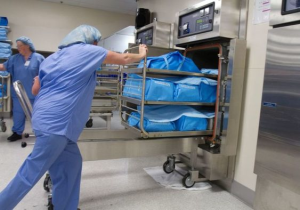What is Core Surgical Training?
Entering the world of surgery is an exciting and noble pursuit, but it’s also a journey that requires dedication, education, and a structured path. Core Surgical Training (CST) serves as the foundational stepping stone for aspiring surgeons. This article will explore what is core surgical training is, why it’s essential, and how it paves the way for surgical excellence.
The Aspiration of Becoming a Surgeon
Before we dive into the specifics of Core Surgical Training, let’s acknowledge the profound desire that drives individuals to become surgeons. The commitment to healing, the fascination with anatomy, and the desire to make a meaningful impact on patients’ lives are the cornerstones of this noble profession.
Demystifying Core Surgical Training
Now, let’s unravel the essence of Core Surgical Training and its significance in surgery.
What is Core Surgical Training
Core Surgical Training, often abbreviated as CST, is a structured and comprehensive training program designed for doctors who aspire to pursue a career in surgery. It serves as the initial phase of surgical training in many countries, including the United Kingdom.
Duration and Structure
CST typically spans two years and is divided into rotations across different surgical specialties. These rotations expose trainees to various aspects of surgery, ensuring a well-rounded education.
Educational Components
CST encompasses both clinical and academic components. Trainees are actively involved in patient care while engaging in research, audits, and educational activities to enhance their surgical knowledge and skills.
Assessment and Progression
Trainees undergo regular assessments to evaluate their progress. Successful completion of CST is a prerequisite for progressing to higher levels of surgical training, what is core surgical training. Trainees work closely with experienced consultants and surgical teams. This mentorship is invaluable for skill development, knowledge transfer, and guidance as trainees progress through their surgical journey. Regular assessments and evaluations are conducted to track a trainee’s progress. Successful completion of CST is a prerequisite for progression to the next stage of surgical training, typically Specialty Training (ST). For different information visit our website gadgetgurusweb.com
Deciphering Core Surgical Training (CST)
Core Surgical Training, often abbreviated as CST, is a fundamental stage in the career progression of aspiring surgeons. It is designed to provide junior doctors with a strong surgical skills and knowledge foundation, setting the stage for specialization in specific surgical disciplines. During CST, trainees are exposed to a diverse range of surgical specialties. This includes rotations in general surgery, orthopedics, and vascular surgery. These rotations are instrumental in building a well-rounded skill set and a broad understanding of surgical practice.
The Educational Framework
CST is not just about hands-on experience. It includes a structured educational curriculum that encompasses classroom-based learning, seminars, workshops, and assessments. These components complement the practical training in the operating room and clinical settings.
The Importance of Core Surgical Training
Building Fundamental Skills
CST lays the foundation for surgical practice. Trainees develop essential surgical skills, including patient management, surgical techniques, and decision-making.
Exposure to Multiple Specialties
CST rotation exposes trainees to a wide range of surgical specialties, helping them discover their areas of interest and specialization.
Clinical Competence
The program emphasizes clinical competence, ensuring that trainees are well-prepared to provide high-quality patient care.
Career Progression
Successful completion of CST opens doors to higher levels of surgical training, leading to specialization in a chosen surgical field.

How CST Differs from Other Training Stages
- Foundation Years (F1 and F2): CST builds upon the foundational experience gained during the Foundation Years. While F2 is more generalized, CST focuses specifically on surgical skills.
- Specialty Training (ST): ST is the subsequent stage where trainees specialize in a particular surgical field, whereas CST provides a broad foundation across multiple surgical disciplines.
Career Benefits
CST equips trainees with a well-rounded skill set, making them competitive candidates for specialty training posts. It also provides clarity for trainees to decide which surgical specialty they are most passionate about pursuing.
Global Relevance
While CST terminology may differ, similar foundational surgical training programs exist in many countries. The principles of providing foundational surgical skills and knowledge are widely recognized and practiced globally. Discover more Exploring the Mpow H10 Wireless Headphones
Mentorship and Guidance
One of the strengths of CST is the close mentorship provided by experienced consultants and surgical teams. This mentorship is invaluable for skill development, learning the intricacies of surgical decision-making, and gaining insights into the surgical profession.

Conclusion
Core Surgical Training is the cornerstone of a surgical career, equipping aspiring surgeons with the knowledge and skills needed to excel in this demanding profession. It’s a rigorous yet rewarding journey that transforms medical practitioners into skilled and compassionate surgeons dedicated to improving patients’ lives through the art and science of surgery. Core Surgical Training represents a crucial phase in becoming a qualified surgeon.
It offers aspiring surgeons a structured and comprehensive platform to acquire essential skills and knowledge. Whether you are a medical student contemplating a surgical career or a junior doctor aiming to specialize, understanding the significance of what is core surgical training is key to making informed educational and professional decisions. It’s a stepping stone towards a fulfilling and successful surgical career.
FAQs
- Can I pursue Core Surgical Training immediately after medical school?
Typically, candidates enter CST after completing their Foundation Year 2 (F2) or equivalent training.
- How competitive is Core Surgical Training?
CST can be highly competitive, with limited training positions available. Candidates often need a strong academic and clinical background.
- What are the key skills I should possess before entering CST?
Basic surgical skills, excellent communication, teamwork, and a commitment to patient care are essential.
- Can I switch specialties after completing Core Surgical Training?
While it’s possible to switch specialties, it may require additional training and evaluation.
- Where can I access more information about applying for Core Surgical Training?
You can find detailed information about CST applications and requirements on your country’s official medical training authority website.
